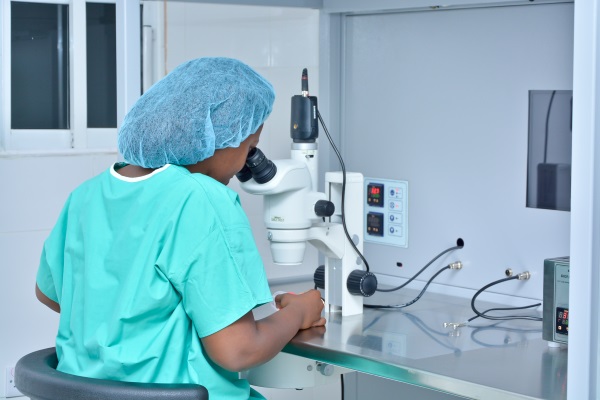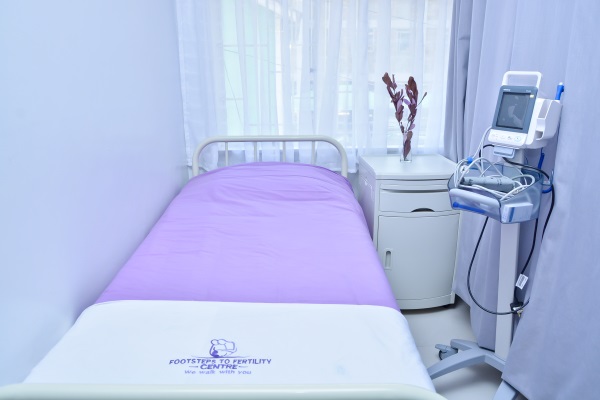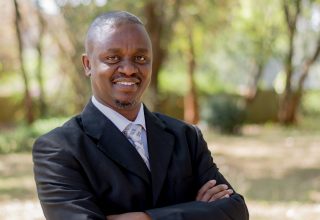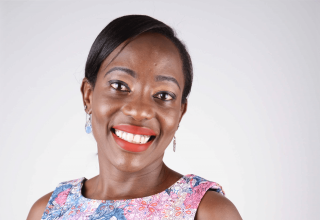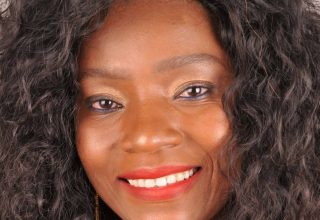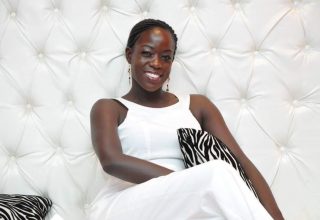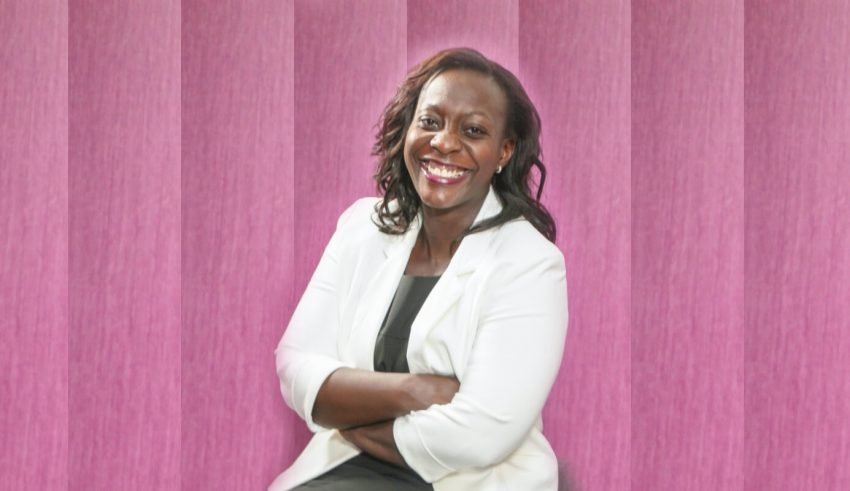
Peter* (not real name) and his wife, had been trying for two years to get a baby to no avail. This brought about a lot of turmoil and pain in the course of their journey. For a while their life revolved around ovulation and trying. Eventually this wore them thin. A year into their trying for a baby without any success a friend introduced them to Dr. Wanjiru. They went to see her together.
“What I liked from the first visit was that Dr. Wanjiru had a plan,” said Peter. “Her first thought was not on cost and dropping figures, but on understanding the problem and taking the time to help us. She walked with us, giving us a step by step plan. We first did the tests, and then based on the findings we took the next step, and the next and the next. There was a sequence and we liked that. We did the treatment with Dr. Wanjiru for over a year, and my wife conceived.
The journey before then had been frustrating. We had been going to doctors who would give us different options to try out; then they would be puzzled as to why it didn’t work. After a while we felt like we were just being bounced around with no solution. That is why we loved Dr. Wanjiru’s approach and stayed with her for over a year undergoing treatment. We now have a healthy bouncing baby boy, who has brought so much joy in our lives.
What this taught me was that infertility is difficult. It can suck the life out of you. You never know how difficult it is until you are in it. I would urge other men out there to talk about it, accept that they are part of the problem and occasionally go for sperm counts. I also learnt that if I am a burden to my wife, this affects her and so I should show a lot more support to her. Because once she is more relaxed, she is happier and this also affects the fertility process.”
Dr Wanjiru Ndegwa Njuguna is a fertility specialist. After working in an environment, where she saw couples struggling to conceive, she decided to do something about it. A wife and a mother of two, she narrates her journey as she ventured into the industry, and how this is the best decision she has ever made.
How it all started
I have always been an entrepreneur at heart and I wanted to be a doctor since I was seven. I had terrible allergies that sent my parents and I to emergency rooms on occasion, so I wanted to be a paediatrician and help children like me. I was however scared stiff of cadavers. In first year quit and tried to get into chemical engineering. My mom was in the meantime praying for me to gather courage and go back to school, which I did. I owe everything to her. I obtained both my undergraduate and postgraduate degree in medicine at the University of Nairobi, specialising in surgery, obstetrics and gynaecology. For my masters I was privileged to get a scholarship from the Katholieke Universiteit in Belgium to study reproductive medicine.
The idea started in 2009. I was a master student then and would use my spare time to do clinics for my mentor. This one particular lady gnawed at my heart. She had been having trouble conceiving, and being in the village, it was deemed her fault. As a result, she was ostracised. By the time she had come to the clinic, she was at her wit’s end. As I listened to her story, my heart cried out to her, and I began to wonder how many people out there are probably going through the same trouble and suffering quietly behind closed doors. I knew instantly that I had to do something. I had to help these couples, especially the women, who are most blamed and burdened by infertility.
I began with Footsteps to Fertility Foundation, to create support and awareness by providing free educational seminars on fertility related issues. Then in 2013 we finally started a small clinic, renting space in a medical centre offering limited services.
We are now a fully-fledged fertility centre offering a whole range of fertility care from Ovulation Induction (OI) or helping women to ovulate, and Intra Uterine Insemination (IUI) to more complicated treatments such as In Vitro Fertilisation (IVF) or test tube babies if you may. We also offer gynaecology and obstetric services.
A thing or two about fertility
Lifestyle choices play an important role when it comes to fertility. Diet, exercise, and emotional wellbeing are key to getting pregnant as well as social choices. Avoiding alcohol, not smoking and making safe sex decisions are equally important. For the women often times we find ourselves balancing career and family. The truth is, it is important not to wait too long to settle down and have a family, for our eggs are precious and like everything else , they have an expiry date.
Women who are under 35 years should seek fertility care after one year of trying to conceive, unless they have pre-existing conditions such as polycystic ovarian disease and endometriosis. Women who are over 35 should seek fertility care after six months of unsuccessful trying.
When it comes to infertility and the solutions sought, many factors come into play. Before coming to an effective course of action that works best for the couple, we embark on a series of tests and once we have the results and we know what we are dealing with, then and only then can we offer various solutions for the couple. For some, diet has played a big role in their inability to conceive thus realising the importance of exercise in one’s daily routine. Sometimes a case of tubal blockage is the culprit and we deal with that in the best way possible. IVF however has become one of the most sought after treatments for most cases of infertility.
Certain foods can boost a woman’s fertility. Foods rich in micronutrients such as folic acid, iron, magnesium, zinc and vitamin E are said to improve the quality of our eggs. The most important aspect to a successful fertility treatment however is positivity. Your mood plays an important role in achieving a successful pregnancy.
Men should be involved in the process of fertility. It is not just a woman’s problem and they also need to be tested and supportive in the whole process. It really is a test to marriage and togetherness is important.
Of challenges faced and lessons learnt
#1: I had quite a number of challenges I must admit when setting up this business. First of all as a woman of faith, some people looked at me sideways wondering why I was trying to do God’s job. This was indeed conflicting, as some people say it’s God who gives children and I have no right interfering. So I had to jump this hoop and explain why exactly I was doing what I am doing. Some people till to date don’t get it, as society can be very harsh and quick to judge.
#2: Because the vision was big, I decided to look for partners for the business. I formed a partnership with a group of people, hoping we would do this together. As I was still pursuing my masters, I travelled to Belgium while we were sourcing for an office space. One of the directors promised that they would sort the matter out and I went to do my exams. On coming back, I found out that I had lost the rental space as I had failed to make a down payment. My partners did not follow up as promised and I was back to square one. It took me another four months to find office space. That was the end of the partnership and I decided to go solo.
#3: Setting up was also quite a challenge. Shipping the equipment from different countries as they are not available locally, I needed to bring in some technical engineers from abroad for assembling and service. It was a nightmare.
#4: Partitioning the office was also something else. Dealing with “fundi’s” can be really challenging. Because the fertility centre needed to be in a certain design, we were constantly partitioning and building. Once I thought we had completed all the interior construction work only to realize that the fundis forgot to insert the power sockets. It took us another two months to complete the work.
#5: Managing people is not easy. As a doctor working in a hospital, your work is to take care of patients. You rarely interact with the hospital staff. However, when you are running your own business you are in direct contact with people. I realised just how difficult it is. I am still a work in progress. I am a perfectionist and I have high standards, therefore finding the balance with my employees is a lesson I am still learning.
Parting Shot
God has given each one of us a purpose. I am glad I found mine that keeps me going. All of us can find it and make it happen. Working hard and smart is equally important. These are values I learned from watching my parents. My daily motto is a quote by Gandhi, “Live as if you were to die tomorrow. Learn as if you were to live forever.”
 Did you enjoy this story?
Did you enjoy this story?
Post a comment below and on our Facebook page or Twitter #MKAZIFootsteps2Fertility
We like to hear from you.
Contacts Footsteps To Fertility Centre:
PHONE: +254 20 528 3218 |0700 041 955


